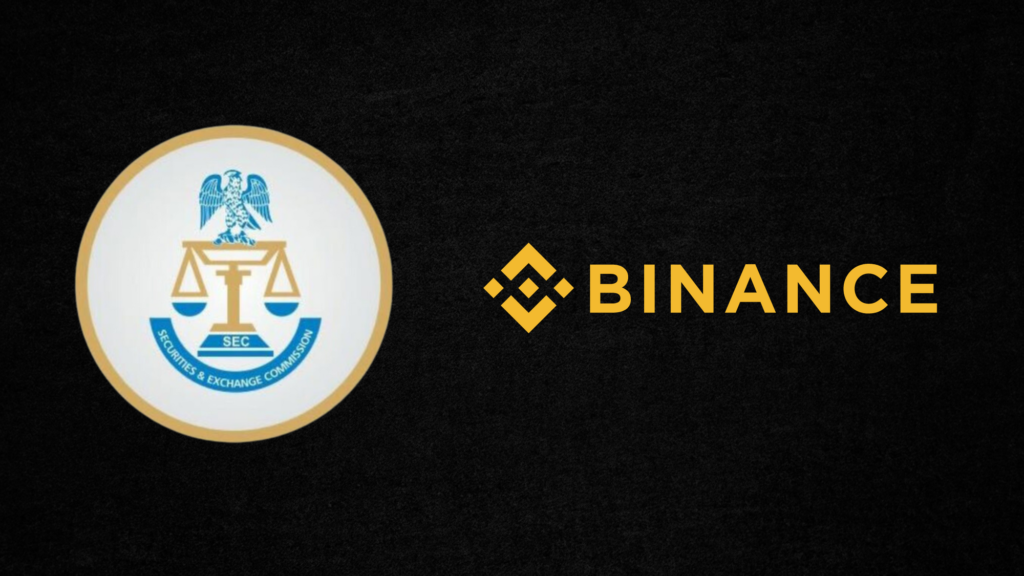- On Friday, June 17, the Binance exchange and the US SEC agreed to avert the SEC demand on the exchange’s temporary shutdown within US soil.
- The SEC accused the Kraken exchange of unlawfully selling and offering securities.
- On June 6, the SEC accused Coinbase of operating its crypto asset trading platform as an unregistered national security exchange and broker.
Since the brutal reveal of the FTX mismanagements, the SEC has been on a man-hunt, specifically, a “crypto-hunt.” The crypto regulatory body is set to ensure that several crypto exchanges have adhered to its crypto laws. Unfortunately, their efforts have blurred the lines between protecting and controlling. It has forced numerous exchanges to shut down due to harsh crypto lawsuits. Its latest lawsuit aims at the industry’s top crypto exchanges: Binance and Coinbase. Its case has crippled several operations, but none appears to have attained a stroke of luck.
Binance has successfully renegotiated a deal with the US government to avert the SEC demand on the exchange’s temporary shutdown within US soil. Although the crypto lawsuit is far from over, the entire crypto industry celebrates this as a win.
The SEC attempts to “clean” the crypto ecosystem.
One of the major demerits of the entire crypto industry is its inability to establish definitive crypto laws. This is mainly because, initially, the main essence o digital currency was to empower the user directly. Due to this, most of its functionality gives complete control to the user, which offers plenty of benefits and risks.
Since users have complete control over their digital assets, this also means that any form of security is also on their hands. As a result, numerous crypto scams plague the industry. From the Oncecoin global scam to South Africa harbouring multiple crypto scammers, the ecosystem has steadily tried to improve its regulatory body.
Also, Read that African blockchain startups are crucial for the developing digital economy.
Furthermore, high volatility has made it more difficult for crypto regulators to find a clear and definitive way to do so. Unfortunately, this mixed opinion on crypto laws was soon shattered by the FTX crash. It proved that crypto scams have the potential to end the entire concept of cryptocurrency ultimately.
The company alone lost almost $8 billion in customer funds. The ripple effects were catastrophic, causing multiple exchanges to crash. In response, the SEC stated that crypto regulatory bodies should tighten their grip on crypto regulations. Unfortunately, what appeared as a positive stance against crypto illegalities soon turned into a man-hunt of every exchange unable to adhere.
The SEC launched numerous crypto lawsuits against exchanges that hinted at a suspicious activity. Companies such as Ripple, Gemini, Genesis, Tron and the Unbanked presented minor exchanges. After a decisive blow, the SEC turned its sights on the top crypto exchanges Binance, Coinbase and Kraken.
SEC crypto lawsuit in Coinbase, Binance and Kraken
The SEC accused the Kraken exchange of unlawfully selling and offering securities. The crypto regulatory body won the crypto lawsuit forcing Kraken to shut down one of its features. In addition, Kraken had to pay $30 million in fines.
On June 6, they would later accuse Coinbase of operating its crypto asset trading platform as an unregistered national security exchange and broker. They further claimed that the second largest crypto exchange offered at least 13 crypto assets as securities without registering first.

The SEC has targeted major crypto exchanges in an attempt to prevent an FTX scenario.[Photo/Binance]
This was a clear violation and breach of the crypto laws. Finally, the SEC went for the biggest fish and sued the Binance crypto exchange. They claimed it operated as an unregistered broker and cleaning agency in the US.
Going after the Binance exchange represented a direct attack o the entire crypto industry. Binance, essentially holding the whole crypto ecosystem together, retaliated by using the SEC.
The SEC lost the battle in an ongoing war.
On Friday, June 17, the Binance exchange and the US SEC reached an agreement that would mark a significant milestone in the crypto industry. Initially, the SEC demanded that the Binance exchange temporarily halts its operation during the crypto lawsuit.
Unfortunately, Binance could not comply since stopping any feature would lead to catastrophic results for the crypto industry and the organisations. Binance took to the legal house and sued the crypto regulatory body for its claims. Fortunately, the SEC stated that both sides had reached a compromise after several days of retaliation. Judge Amy Berman Jackson, who overseed the entire case, signed off the deal.
Under the new agreement, Binance Exchange would transfer all US customer funds to a unique digital repository accessible only to its US branch. The Biance.US can transfer company assets only to make payments for expenses or satisfy obligations incurred in the ordinary course of operations.
Binance exchange said, “Although we maintain that the SEC’s request for emergency relief was entirely unwarranted, we are pleased that we resolved the disagreement over this request on mutually acceptable terms.”
The SEC director of enforcement, Gurbir Grewal, said, “We ensured that US customers will be able to withdraw their assets from the platform while we work to resolve the alleged underlying misconduct.“
Conclusion
The battle between the SEC and Binance exchange is a high-stakes legal battle that might shape the crypto industry in the future. Several crypto exchanges have halted their operation in the US in six months, stating the conditions are unfavourable.
Since the FTX crash, the crypto industry has struggled to survive. The countless crypto lawsuits have significantly damaged its progress, but hope remains. If Binance exchanges are triumphant, we may see a radical improvement. Unfortunately, the same stakes are high if it is lost. We hope that both find an amicable way of improving crypto regulations.
- SEO Powered Content & PR Distribution. Get Amplified Today.
- PlatoData.Network Vertical Generative Ai. Empower Yourself. Access Here.
- PlatoAiStream. Web3 Intelligence. Knowledge Amplified. Access Here.
- PlatoESG. Automotive / EVs, Carbon, CleanTech, Energy, Environment, Solar, Waste Management. Access Here.
- BlockOffsets. Modernizing Environmental Offset Ownership. Access Here.
- Source: https://web3africa.news/2023/06/20/news/the-sec-loses-its-battle-with-binace-not/
- :has
- :is
- :not
- 13
- 17
- a
- Able
- acceptable
- accessible
- accused
- activity
- addition
- adhere
- africa
- After
- against
- agency
- Agreement
- aims
- All
- alleged
- alone
- also
- Although
- an
- and
- any
- appeared
- appears
- ARE
- AS
- asset
- Assets
- At
- attack
- attained
- Attempts
- Battle
- BE
- because
- been
- benefits
- between
- Biggest
- Billion
- binance
- Binance crypto exchange
- Binance exchange
- blockchain
- Blockchain Startups
- blow
- bodies
- body
- both
- Both Sides
- Branch
- breach
- broker
- but
- by
- CAN
- case
- catastrophic
- causing
- celebrates
- claimed
- claims
- Cleaning
- clear
- CO
- coinbase
- Companies
- company
- company assets
- complete
- comply
- compromise
- concept
- conditions
- control
- controlling
- could
- Course
- Court
- court case
- Crash
- crucial
- crypto
- crypto asset
- Crypto ecosystem
- crypto exchange
- Crypto Exchanges
- Crypto Industry
- crypto laws
- crypto lawsuit
- Crypto Lawsuits
- Crypto regulations
- crypto scams
- crypto-assets
- cryptocurrency
- Currency
- customer
- Customer Funds
- Customers
- Days
- deal
- decisive
- definitive
- Demand
- demanded
- developing
- difficult
- digital
- Digital Assets
- digital currency
- direct
- directly
- do
- down
- due
- during
- ecosystem
- effects
- efforts
- emergency
- empower
- end
- enforcement
- ensure
- Entire
- entirely
- essence
- essentially
- establish
- Every
- exchange
- Exchanges
- expenses
- far
- Feature
- Features
- Finally
- Find
- fines
- First
- Fish
- For
- form
- Fortunately
- Friday
- from
- FTX
- ftx crash
- functionality
- funds
- further
- future
- Gemini
- Genesis
- gives
- Global
- Government
- had
- Hands
- Have
- High
- holding
- hope
- House
- HTML
- HTTPS
- if
- improve
- improvement
- improving
- in
- inability
- industry
- industry’s
- initially
- into
- IT
- ITS
- Jackson
- judge
- june
- Kraken
- Kraken exchange
- largest
- Largest Crypto
- later
- latest
- launched
- Laws
- lawsuit
- Lawsuits
- lead
- least
- Legal
- lines
- lost
- luck
- made
- Main
- mainly
- maintain
- major
- make
- mark
- max-width
- May..
- means
- might
- milestone
- million
- minor
- mixed
- months
- more
- most
- multiple
- mutually
- National
- national security
- New
- numerous
- obligations
- of
- off
- offered
- offering
- Offers
- on
- ONE
- ongoing
- only
- operated
- operating
- operation
- Operations
- Opinion
- or
- ordinary
- Organisations
- over
- Pay
- payments
- Plague
- platform
- plato
- Plato Data Intelligence
- PlatoData
- pleased
- Plenty
- positive
- potential
- presented
- prevent
- Progress
- protecting
- proved
- radical
- reached
- Read
- registering
- regulations
- Regulators
- regulatory
- relief
- remains
- repository
- represented
- request
- resolved
- response
- result
- Results
- reveal
- Ripple
- risks
- s
- Said
- same
- Scam
- Scammers
- scams
- scenario
- SEC
- Second
- Securities
- security
- see
- Selling
- set
- several
- Shape
- should
- Shut down
- shutdown
- Sides
- Sights
- signed
- significant
- significantly
- since
- SIX
- Six months
- So
- soil
- soon
- South
- South Africa
- specifically
- Startups
- stated
- stating
- stopping
- Successfully
- such
- sued
- survive
- suspicious
- targeted
- temporary
- that
- The
- The Future
- their
- they
- this
- to
- together
- took
- top
- Trading
- Trading Platform
- transfer
- tried
- TRON
- true
- Turned
- Ultimately
- unable
- unbanked
- underlying
- unfortunately
- unique
- unregistered
- us
- us government
- US Sec
- User
- users
- using
- VIOLATION
- Volatility
- war
- was
- Way..
- we
- went
- were
- What
- which
- while
- WHO
- whole
- will
- win
- Wins
- with
- withdraw
- within
- without
- Won
- Work
- would
- zephyrnet













